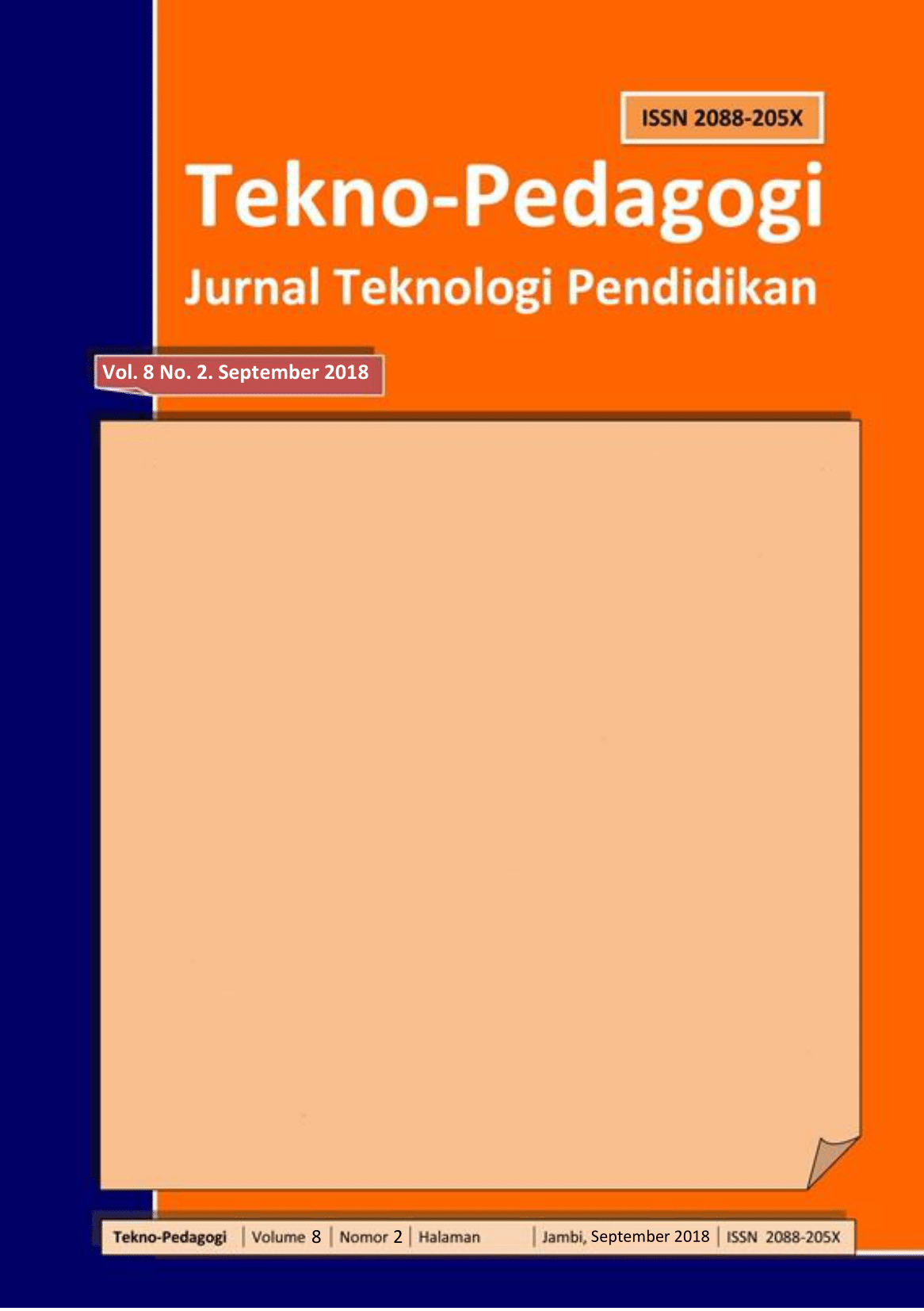Teacher Strategies in Realizing the Pancasila Student Profile Through Mathematics Learning in Elementary Schools
DOI:
https://doi.org/10.22437/teknopedagogi.v8i2.32768Keywords:
Mathematics Learning, Pancasila Student Profile, Teacher StrategyAbstract
This research aims to describe the strategies used by teachers in developing Pancasila student profiles through mathematics learning at the elementary school level. This research adopts a qualitative approach with a focus on the phenomenological to describe teachers' strategies in creating Pancasila student profiles through mathematics learning. Research data was collected through interviews with class I E teachers as the main source, as well as through participatory observation and documentation as additional data sources. The research results showed that class I E teachers implemented various strategies to achieve this goal. First, in creating a profile of students who are believers, devoted to God Almighty, and have noble character, teachers become role models for students in practicing religious values and taking a personal approach to students. Second, to develop a globally diverse profile of students, teachers provide an understanding of various cultures in Indonesia. Third, to encourage the profile of students working together, teachers organize group activities and teach the values of cooperation and sincerity. Fourth, to develop an independent student profile, teachers provide individually challenging assignments and provide extra challenges to complete. Fifth, in developing the profile of students who think critically, teachers use group division to encourage students to explore information, evaluate, analyze and make conclusions. Teachers also act as motivators for students. Finally, to develop creative student profiles, teachers create fun learning, interact with students to develop their creativity, and connect learning with the context of everyday life. As a facilitator, the teacher supports the student's learning process.
Downloads
References
Febriani, C. (2017). Pengaruh media video terhadap motivasi belajar dan hasil belajar kognitif pembelajaran ipa kelas V sekolah dasar. Jurnal Prima Edukasia, 5(1), 11-21.
Hermawan, I. C. (2013). Revitalisasi pendidikan politik dalam pendidikan kewarganegaraan di Indonesia. ATIKAN, 3(1).
Inkeles, A. (2017). National character: A psycho-social perspective. Routledge.
Juraida, J. (2015). Pelaksanaan Layanan Bimbingan Kelompok untuk Meningkatkan Ketakwaan Siswa Terhadap Tuhan Yang Maha Esa di Mts Negeri Mulawarman Banjarmasin. Jurnal Mahasiswa BK An-Nur: Berbeda, Bermakna, Mulia, 1(3).
Khilmiyah, A. (2016). Metode Penelitian Kualitatif. Samudra Biru.
Murtiani, S., Subroto, I. M. I., & Kurniadi, D. (2016). Sistem Informasi Retribusi Pedagang Pasar Kabupaten Semarang. Jurnal Transistor Elektro dan Informatika (TRANSISTOR EI), 1(1), 47-59.
Nugraha, N. (2017). Peran Guru Dalam Upaya Pembentukan Wawasan Kebangsaan Pada Siswa Kelas Viii Smpn 1 Barat Kabupaten Magetan Tahun Ajaran 2015/2016. Citizenship Jurnal Pancasila Dan Kewarganegaraan, 5(1), 13-23.
Rachmah, H. (2013). Nilai-nilai dalam pendidikan karakter bangsa yang berdasarkan Pancasila dan UUD 1945. E-Journal WIDYA Non-Eksakta, 1(1), 7-14.
Ratu, I. (2013). Desain Pembelajaran Bangun Datar Menggunakan Fable “Dog Catches Cat” And Puzzle Tangram Di Kelas II SD. " Desain Pembelajaran Bangun Datar Menggunakan Fable “Dog Catches Cat” And Puzzle Tangram Di Kelas II SD", 4(1), 11-12.
Soeprapto, S. (2013). Landasan aksiologis sistem pendidikan nasional Indonesia dalam perspektif filsafat pendidikan. Jurnal Cakrawala Pendidikan, (2).
Suharyanto, A. (2013). Peranan pendidikan kewarganegaraan dalam membina sikap toleransi antar siswa. Jurnal Ilmu Pemerintahan dan Sosial Politik, 2(1), 192-203.
Supriadi, S. (2015). Perkembangan Fenomenologi pada Realitas Sosial Masyarakat dalam Pandangan Edmund Husserl. Scriptura, 5(2), 52-61.
Utari, R. S. (2017, December). Implementasi Nilai-Nilai Karakter dan Norma Sosiomatematik dalam Pembelajaran Matematika. In PROSIDING SEMINAR NASIONAL PROGRAM PASCASARJANA UNIVERSITAS PGRI PALEMBANG.
Wahyuni, R. (2016). Pembelajaran Kooperatif Bukan Pembelajaran Kelompok Konvensional. JUPENDAS (Jurnal Pendidikan Dasar), 3(1).
Yunus, R. (2013). Transformasi nilai-nilai budaya lokal sebagai upaya pembangunan karakter bangsa. Jurnal penelitian pendidikan, 13(1), 67-79.
Downloads
Published
How to Cite
Issue
Section
License
Copyright (c) 2018 Adhila Irma Prianti Gayo

This work is licensed under a Creative Commons Attribution 4.0 International License.





